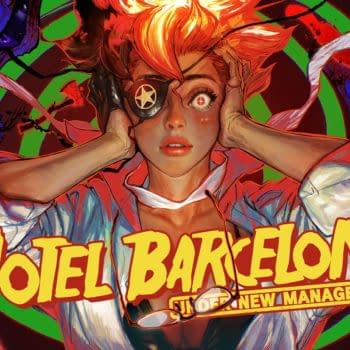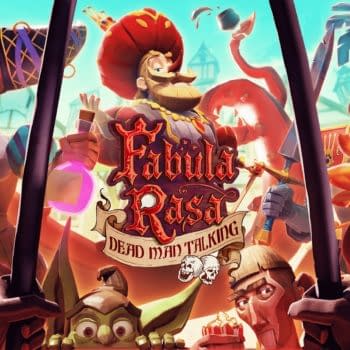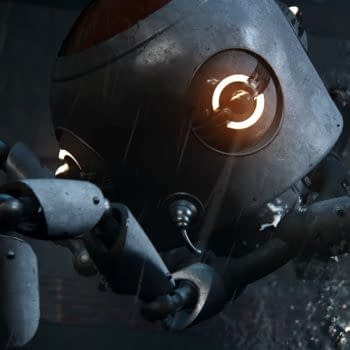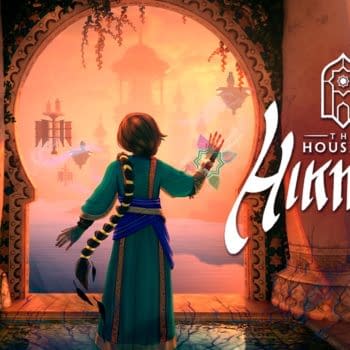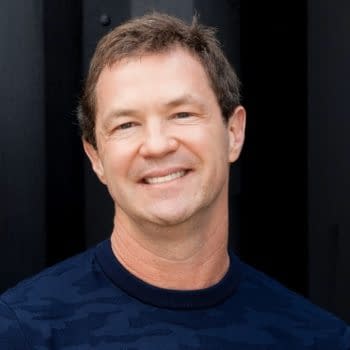Posted in: Events, Games, Interview, Music, PAX West, Soundtrack, Video Games | Tagged: PAX West 2025, Wilbert Roget
Interview: Wilbert Roget Talks Making Video Game Soundtracks
We had a chance to chat with composer Wilbert Roget, as he discusses the art of making video game soundtracks ahead of PAX West 2025
Article Summary
- Wilbert Roget shares insights on composing for video games like Helldivers 2, Mortal Kombat, and Star Wars Outlaws
- From childhood piano lessons to marking AAA franchises, Roget discusses his game composing journey
- Explores Roget's creative process, scoring for legendary titles, and the challenges of iconic soundtracks
- Highlights recent successes with Gundam: Requiem for Vengeance and upcoming unannounced projects
When it comes to making video game soundtracks in the modern era, one of the more frequent names that enters the conversation for epic masterpieces is Wilbert Roget. The man has had a hand in several high-profile games over the past two decades, including the intense music for Helldivers 2, the epic fighting tracks for Mortal Kombat 11 and MK1, the sci-fi settings for Star Wars Outlaws, and the haunting auroa from Pacific Drive. This week, Wilbert will be coming to PAX West 2025 where he'll have an in-depth discussion about the music behind Helldivers 2 as one of the featured speakers. Before that, we got a chance to chat with him about his career and some of his recent work.
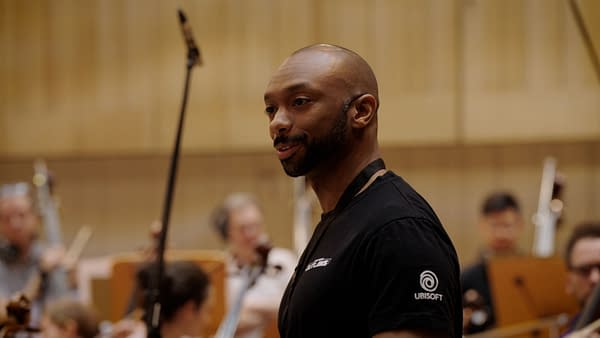
BC: Hey Wilbert! First off, how have things been going for you lately?
WR: Very grateful for the reception of my recent scores, certainly! We live in very uncertain times, but games are a passion that can connect people all over the world, and I feel honored to contribute to the field.
For those not familiar with your career, how did you first get into music and eventually make your way to composing soundtracks?
I took piano lessons all throughout grade school, and got my first game system – the Sony PlayStation – specifically to play Final Fantasy VII. It was my first Japanese role-playing game, and singlehandedly, it influenced me not only to be a composer but to write music specifically for games. Eventually, I discovered anime music and studied film scores, and wrote indie game scores all throughout high school and college.
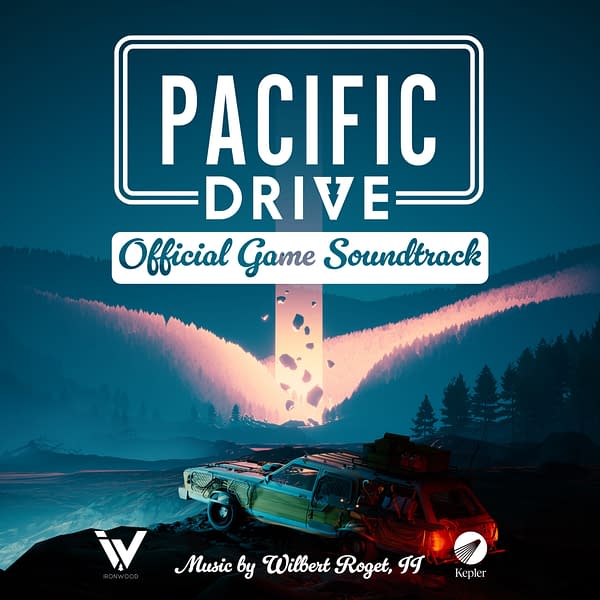
How did you end up getting the job at LucasArts, and how was it composing the soundtrack for Star Wars: The Old Republic?
Shortly after college, I met a sound designer, Damian Kastbauer, who worked with me on an indie game. The project was never finished, but we stayed friends, and later he convinced me to go to the Game Developers Conference. I met Jesse Harlin, the LucasArts music supervisor, at a Game Audio Network Guild event during GDC. A year or so later, Damian was working as an audio contractor on Star Wars: The Force Unleashed, and when Jesse put in a hiring request for a music assistant, Damian suggested they reach out to me to apply as well. I got the job and spent the next five years at LucasArts, working on dozens of games and learning the ins and outs of AAA game development.
Star Wars: The Old Republic was my first experience working with a live orchestra, which was both thrilling and terrifying. Mark Griskey was our lead composer, with Gordy Haab and Lennie Moore as co-composers, and eventually both Jesse Harlin and I contributed as well. I was easily the least experienced of the lot, but in retrospect, I think there was some charm to the naïveté. Mostly, I remember being overjoyed at the idea of being an official composer for a blockbuster video game – a dream I'd had for almost half my life at that point. Each cue I wrote was bursting with ideas and concepts that I couldn't wait to try out; Apparently, I was writing so quickly that the team assigned me twice as many pieces as they initially planned. At one point, I was simultaneously working on music implementation on The Force Unleashed 2, final bugfixes for Monkey Island 2: Special Edition, and my final cues for The Old Republic, all at the same time, staying in the office well past midnight for weeks…! It was a difficult time, and I strongly advise against spending that much time at a desk, but again, the thrill of writing for The Old Republic kept me going.
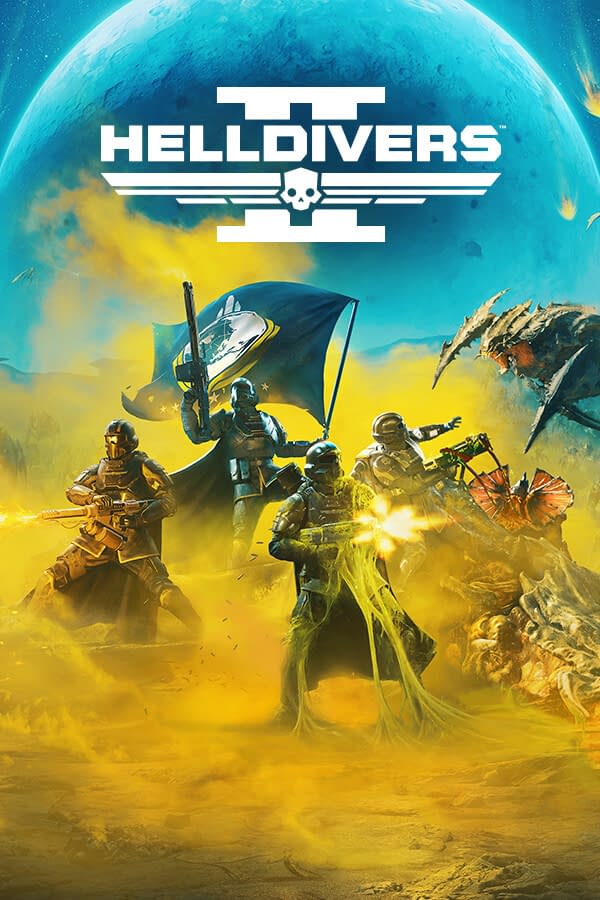
Over the years, you've had a hand in some of the most iconic game soundtracks, including Mortal Kombat, Call of Duty, Destiny, and Tomb Raider. How has it been for you to work on those franchises and know you had a hand in the tone of those games?
I was stunned every time each of these franchises brought me on to score their latest games! Mortal Kombat was my first arcade game and an obsession all throughout middle and high school, Tomb Raider 2 was one of my first PlayStation games, and scoring a WWII shooter was a dream project ever since I fell in love with Michael Giacchino's Medal of Honor soundtracks in college. Of course, it can be extremely intimidating to step into these established sound worlds, particularly in cases like Call of Duty and Destiny, where the previous iterations' music was so iconic and celebrated. But it was reassuring to see how positively the players responded to our new work, and I feel incredibly lucky to have contributed to each of these franchises.
How do you create a soundtrack, from the initial proposal to pitching the songs to the studios?
Each project starts differently – sometimes I'll contact the studio, sometimes they'll request I write a demo piece for the project, and sometimes they'll reach out to me directly for a score. Once we've started the writing process, we usually begin by writing a main theme – in the cases of Mortal Kombat 11 and Star Wars: Outlaws, my demo piece became the main theme, and we started the in-game music right away. Essentially, the idea is to establish a sonic palette for the entire score, as well as any important melodic themes that might be reused throughout. When deadlines permit, I'll spend a good amount of time in a "pre-composition" phase, where I'm watching relevant films, reading books related to the genre, researching previous games in the franchise when applicable, and taking tons of notes throughout. From there I'll eventually have ideas for a sonic palette, which gradually leads into sketching and eventually producing the music.
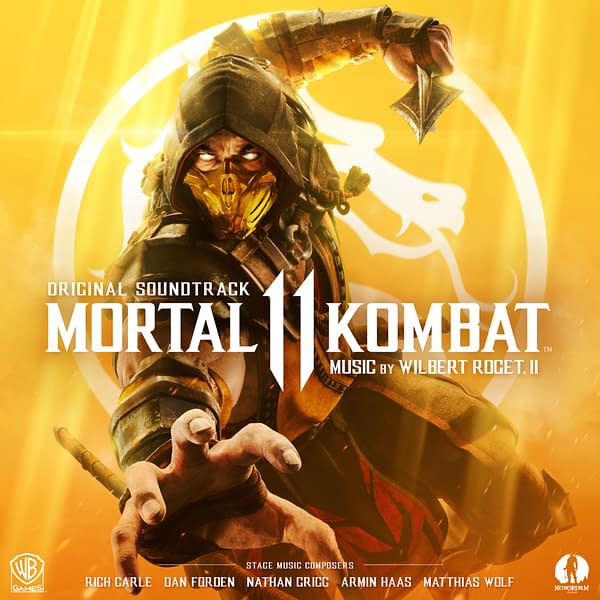
How often do you find yourself scrapping songs or changing what you've made? Is there any kind of balance between staying creative on the fly and sticking to the plan?
I frequently sketch music on paper before spending any time producing and arranging, so thankfully the ideas are usually well-formed by the time I go to the computer – it's much easier to scrap something on paper than it is to redo extremely time-consuming work in the DAW. Unfortunately, some ideas are easier to implement than others, so it can be incredibly frustrating when I know a concept "could" be good, but isn't working just yet. I know many composers recommend starting over with new ideas at this point, but I tend to stick it out and keep chipping away at it. If anything, making progress down the wrong road will inform my work when I restart.
Some of your more recent accolades include Helldivers 2 and Pacific Drive, how was it working on those two titles as they both blew up in their own ways?
I wrote most of the Helldivers 2 way back in 2020, and I worked on Pacific Drive throughout 2022, so they were separated from the release dates by quite a lot of time. I had expected Helldivers 2 to release years earlier, so you can imagine my surprise to find out both games would release on the same month – with the Mortal Kombat 1 "Khaos Reigns" DLC, Star Wars: Outlaws, and Gundam: Requiem for Vengeance to follow later in the year! It was a scramble to prepare for each of these projects' launches, but I can't express how overjoyed I was at the players' and critics' reception to both games. Every game release comes with its share of issues and criticisms, but Helldivers 2 was such a hit with players and content creators that it became an entire internet phenomenon that persists to this day. I'm very proud of my work on both games' scores, and feel especially lucky that they released so close to each other while being radically different in tone.
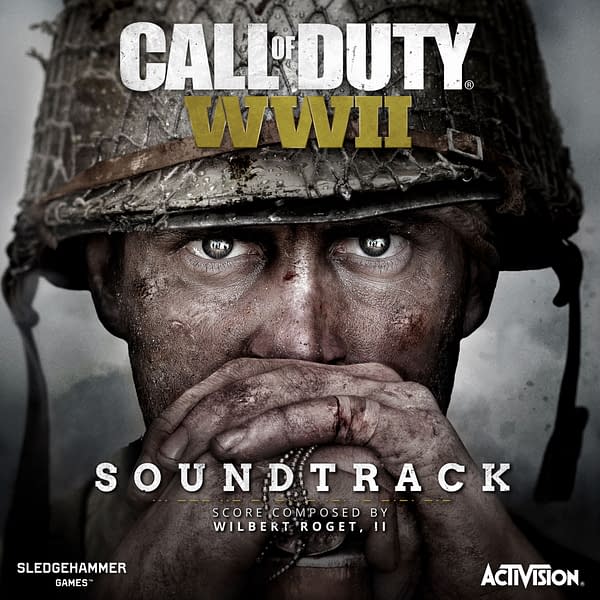
You've also recently composed the score for Star Wars Outlaws! What was it like dipping back into that universe for an entirely new game?
I'd already worked on several games in the franchise, most recently Vader Immortal: A Star Wars VR Series, which featured a traditional prequel-era John Williams sound. It was a fun project, but by the time Ubisoft reached out to me about Star Wars Outlaws, I was no longer interested in writing a traditional Star Wars score. Thankfully, the developers at Massive Entertainment encouraged me to find a bespoke sound for Outlaws, branching off the film scores but still offering a unique voice for the criminal syndicates and open-world gameplay.
It was a fantastic opportunity to combine many of my musical interests and experiences into one score, using world instruments and soloists, extensive synthesis, and designed sounds, along with the symphonic orchestra. I also worked closely with the developers on the interactive music system, which is a rare privilege when working as an external composer on a major title. We created a dynamic, multi-layered system that closely underscored the player's experience while still carrying a Star Wars signature. And of course, it was a pleasure working with the Royal Scottish National Orchestra, the Nashville Scoring Orchestra, our soloist musicians, and our team of co-composers and engineers!
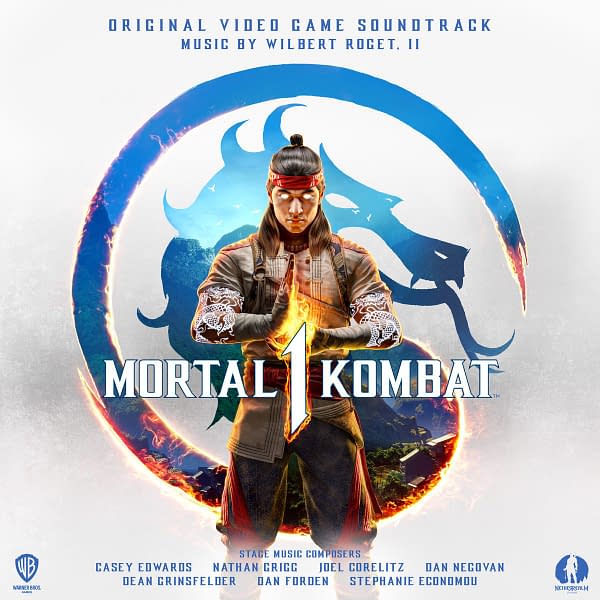
Recently, you also delved into TV as you composed music for Gundam: Requiem for Vengeance, which is very different from a lot of the other projects you've done. How did that come about, and how was it creating music for such an iconic anime?
Years ago, I befriended the audio director and animation producer, Hiroaki Yura, and we worked on a few smaller projects together. I was genuinely shocked when the Gundam opportunity came about, as I'd assumed scoring an anime was an impossible goal – I don't live in Japan or speak Japanese, unfortunately. But Hiro explained that they wanted this iteration of the franchise to appeal to both a Japanese and a Western audience, and as such, they hired a German CG director (Erasmus Brosdau) and an American writer (Gavin Hignight). My task was to create a score that used Western-style production and custom underscore, but with a strong focus on melodic themes throughout. I think they wanted me specifically involved because the show has an art direction reminiscent of WWII films, but in a futuristic sci-fi context; I'd previously scored Call of Duty: WWII, which also combined both historical and modern elements in the music.
I spent a lot of time sketching and developing themes, analyzing the script, studying previous Gundam films and series, and having extensive conversations with Hiro about the franchise. We recorded the orchestra at Trackdown Studios in Sydney, Australia, with the Eminence Symphony Orchestra conducted by Phillip Chu, and engineered by the late great John Kurlander. One of my greatest musical heroes, Kou Otani (Gundam Wing and Shadow of the Colossus composer), was also in attendance for a separate scoring session Philip was conducting, and it was a tremendous honor to befriend him and hear his new work.
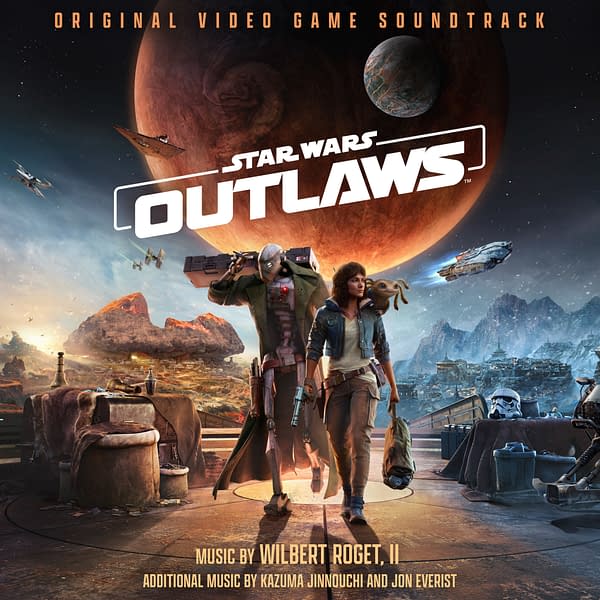
If you had to choose, what would you say is the individual score you take the most pride in, for whatever reason?
I don't usually like to single out any of my scores, since each represents a totally different facet of myself, as well as the generous franchise fans that I greatly appreciate. Call of Duty: WWII was an unimaginable challenge for me to overcome, as a relatively unknown composer following the work of some of the biggest names in Hollywood, and on a title that returned to the classic WWII setting after 10 years of modern and futuristic games. And of course, Helldivers 2's massive success was accompanied by so much generous support of my score from the fans, with dozens of arrangements and covers, not to mention the BAFTA and DICE Awards, which I'm incredibly grateful for.
But I'd be remiss if I didn't again mention Gundam: Requiem as perhaps my favorite scoring experience yet. Working with the team in Tokyo was a creative dream come true – it was in a franchise previously scored by some of my favorite composers, including Yoko Kanno, Hiroyuki Sawano, Kenji Kawai, and of course Kou Otani, and the demands of scoring anime aligned so well with my own desires to write melodic music in a variety of styles. I had a diverse set of collaborators across several genres, including some brilliant Ukrainian soloists and vocalists I hired to underscore the Eastern European setting. It was an unforgettable experience, and I'm hoping to work more in the Japanese anime scene in the future!
What have you got in the works at the moment?
I'm currently working on two unannounced projects, but will have more to report in the coming months. Until then, my most recent score was the "A Pirate's Fortune" DLC to Star Wars Outlaws, which also got a second album release along with new cantina music by Cody Matthew Johnson. Besides that, be sure to check out the 6-episode Gundam: Requiem for Vengeance on Netflix, as well as our aforementioned "A Pirate's Fortune" DLC for Star Wars Outlaws. And of course, for all our fellow Helldivers, my SES Will of War will see you on the battlefield!





